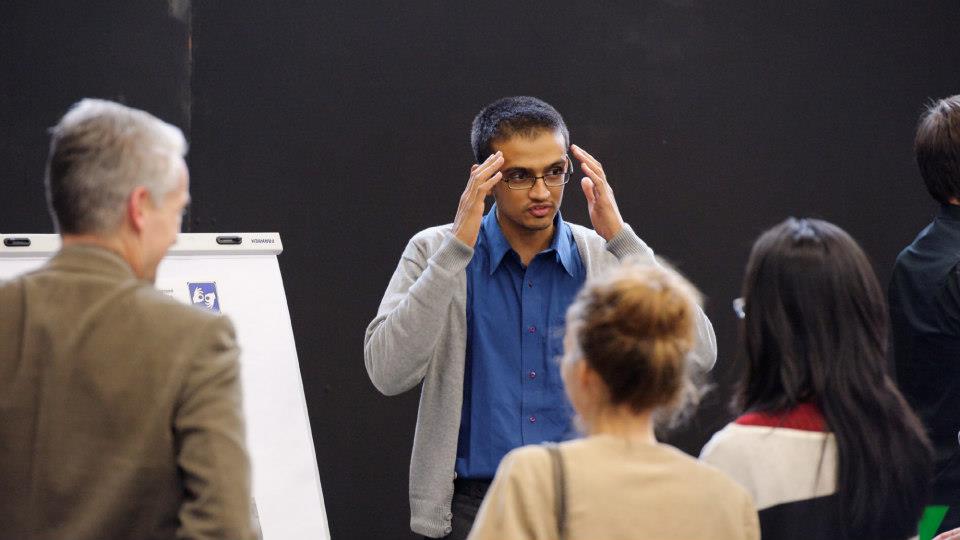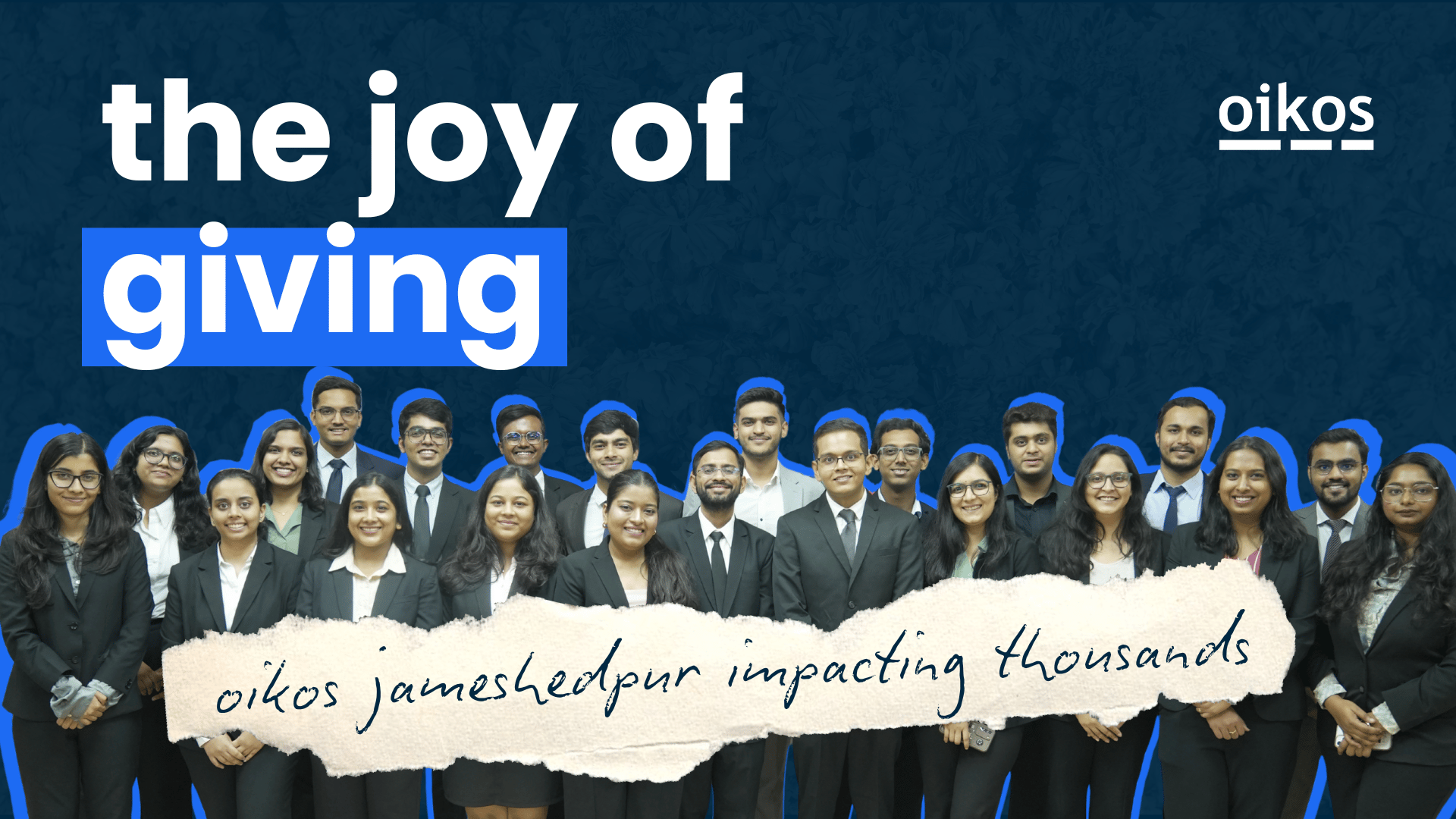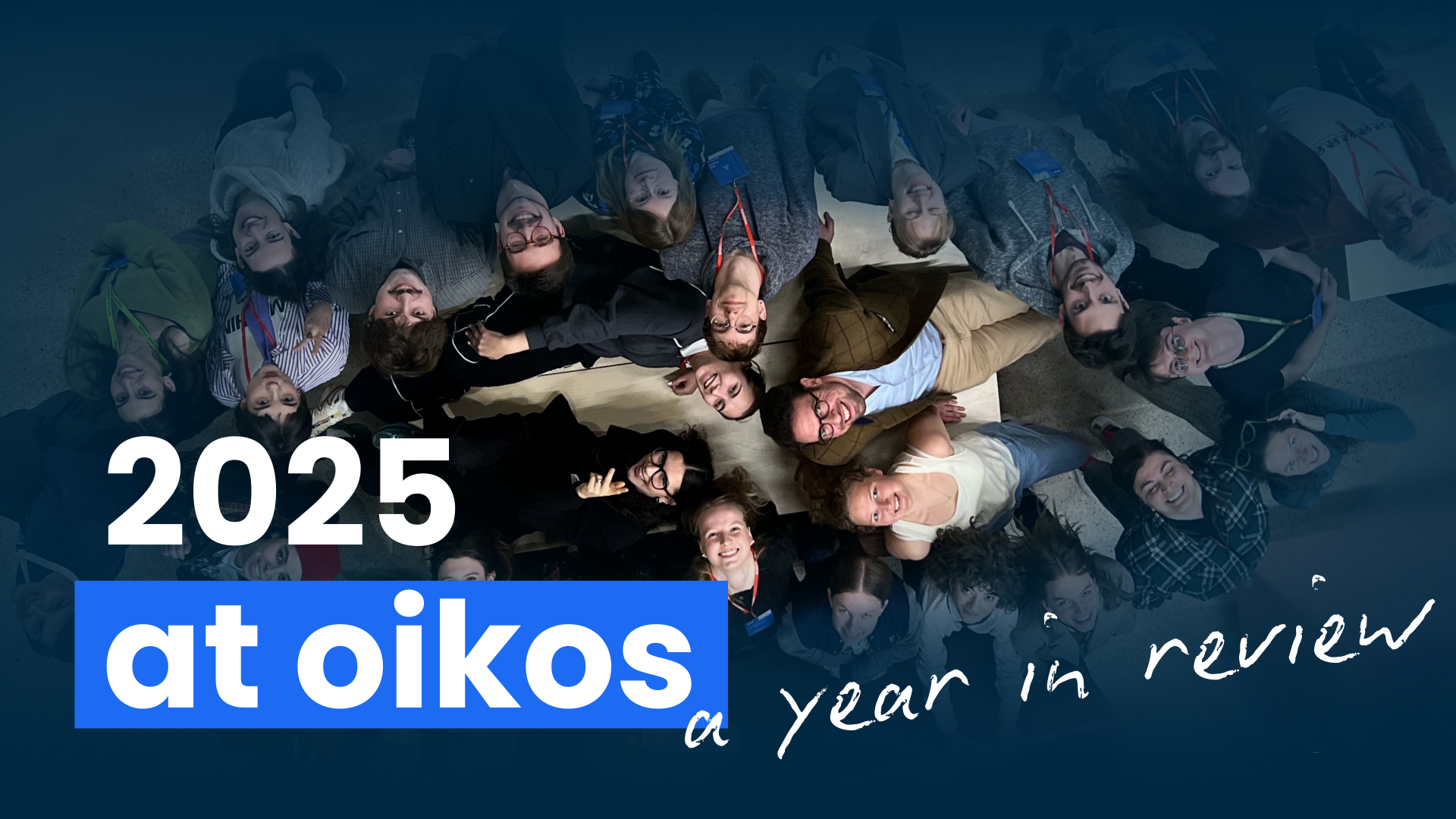
Students are predictably naive and candid, their outlook guileless and discernible. We as students often dwelled on ideas, which would appear rather impertinent. Our beginnings are difficult to trace as well as easy to recollect. This is because it all began when we began our studies at the School of Architecture, CEPT University, Ahmedabad. None of us had met, before we joined university.
Our ideas and interactions began to take shape as we got to know each other through our work. Our initial interactions were primarily work related, which later began on more social grounds. During these deliberations we began to discuss our outlook all the more analytically. These discussions at times strayed into unfathomable forays. These would provide neither clarity nor fruit. However today we bear our footings to these ʻstrayed discussionsʼ.
We were lucky to have a thriving oikos chapter at our University. We had applied for the PLP [Project Leadership Programme] back in 2011 organised by oikos International. This was the first time that our idea was nurtured and shaped into what we are today. The project during the PLP dealt with recycling paper waste at our university and making products which can be used by students. We had made paper bags and bricks from this waste. The PLP and later on our other interactions at the Futurelab encouraged us and reassured our belief in what we were doing.
Today we are a thriving enterprise with projects focussed on societal upliftment. We are into into manufacturing handmade ceramic artefacts and handmade paper products from recycled paper and plant fibres. We source our material from waste produced at institutions and industries. The products that we develop employ local artisans and individuals with disabilities. This holistic and integrated approach to our work is something that we have learnt from our interactions with fellows at oikos and many other institutions. Our initiative HAPACOOP [Hand Papermaking Cooperative] is a co-op of individuals with varied disabilities. Such as physically challenged, hearing impairment, visual impairment and mentally challenged. Here the individuals produce paper pulp bricks, small size handmade paper from banana fibres and products from it. The main focus of the project is motivation, training, information dissemination; technical assistance and providing a livelihood vocation to distinctly enabled individuals. We find it highly demeaning to gain leverage from someone’s disabilities even for the benefit of the disabled, which is why we make the most sincere recommendation that the products made at HAPACOOP should not be marketed as products made by disabled individuals. It is contradictory to conventional norms of marketing and commerce. Often, their disability is looked at as the products unique selling point. We are convinced that this is an act of moral degradation. Their limitation gives them the patience and placidity required for a meditative activity like hand papermaking. Therefore let us work in a way, which would instil confidence and dignity in them. For it is our task to suggest them; a way on which they would tread with pride.
Due to our architectural education we have approached hand papermaking from a different perspective. For us making products such as bricks, panels and furniture was more attractive than making sheets, which is something we still pursue and due to the self taught nature of our explorations we have a prolonged learning curve compared to someone who would be guided by a master. We began exploring possibilities of making yarn from banana paper in 2013. We collaborated with local weavers for guidance. The fabric is used to make footwear and apparels. These are humble beginnings and we have a lot to learn.What we have achieved so far is that we choose to grow together than shrink separately. The learnings which happen within a collective are staggering. We approach our work in a manner, which eventually benefits society.
This need not be a direct, immediate or tangible benefits. It is the repercussions of our initiative, the ripples that it sends which are important. These were our learnings from the progressive oikos community!
By Pranav Gajjar




